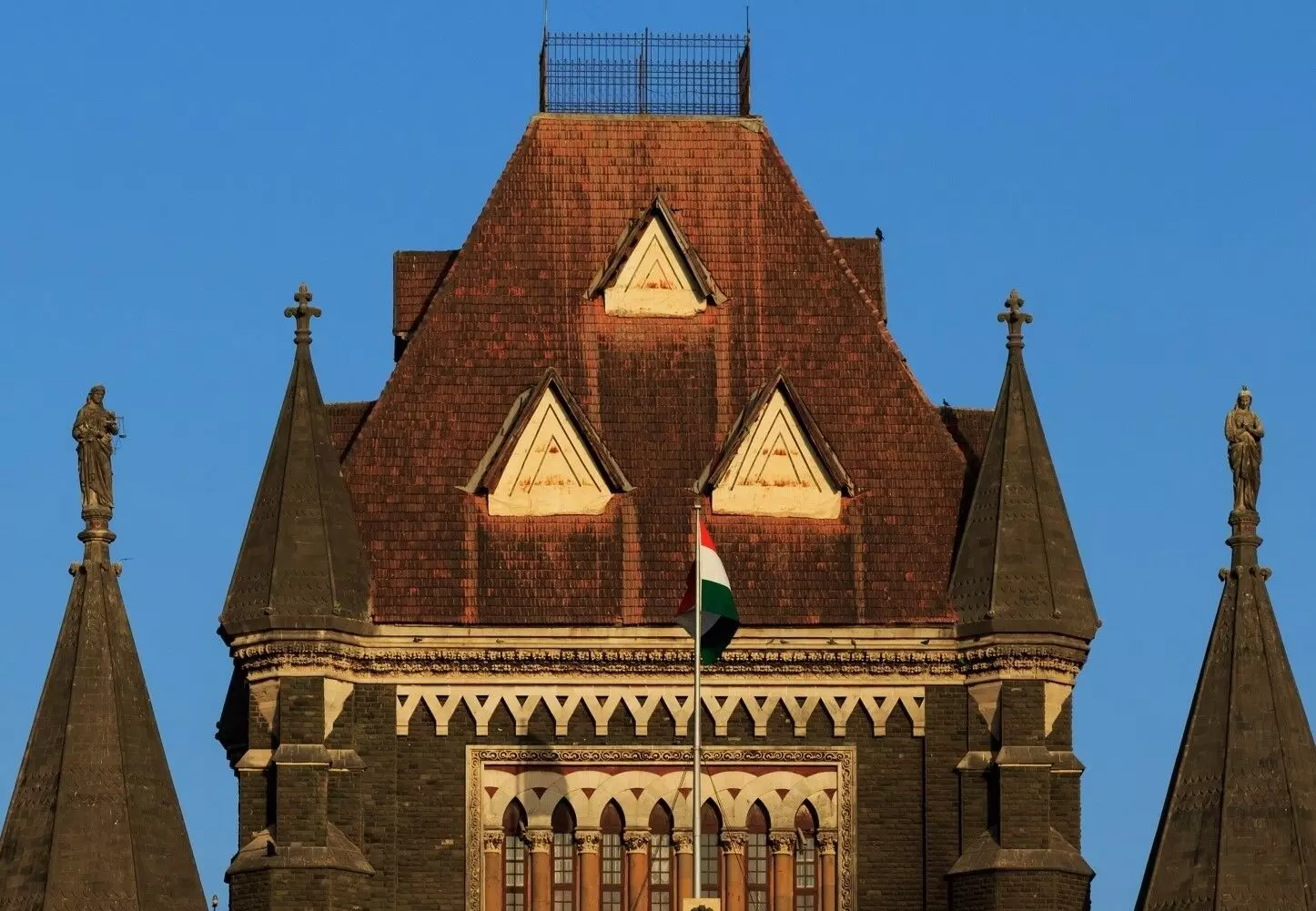
Bombay High Court protects Russian woman from forcible exit from India
text_fieldsBombay High Court (IANS Photo).
Mumbai: The Bombay High Court expressed dissatisfaction with the approach of the Indian government while hearing a plea by a Russian woman who sought to challenge the exit permit issued to her following her divorce from an Indian man. The court emphasised that a nursing mother should not be separated from her infant child based on nationality, questioning the validity of Section 7A (3) of the Citizenship Act.
The plea was filed by the 38-year-old Russian woman, her current Indian husband, their infant daughter, and the minor son from her previous marriage to an Indian citizen. They challenged the exit permit issued by the police under the instructions of the Union Ministry of Home Affairs.
The division bench, comprising Justice Gautam S Patel and Justice Neela K Gokhale, highlighted the need for a humane approach and expressed concerns over the perception that all citizens are considered suspects. They stated, "The idea of governance that all citizens are considered suspect is not palatable."
The Russian woman had obtained an X1 visa and an OCI (Overseas Citizen of India) card during her marriage to an Indian citizen. After their divorce, she married the petitioner, an Indian man, and they have an infant daughter. Despite applying for OCI status based on her second marriage, she was asked to leave the country by March 23. The woman sought an extension of the exit permit while her plea was pending, reported The Indian Express.
The court granted the extension, expressing that there was no emergent need for the woman to be forcibly expelled from the country. The petition raised questions about the rights of spouses of foreign origin married to Indian citizens, the eligibility for visas and OCI cards, and the status of these documents after the dissolution or annulment of the marriage.
The Central Government submitted an affidavit in reply, stating that the impugned order was in line with statutory requirements. The court, however, urged the government to adopt a sensible and humane approach to protect the rights of the woman and her child. Justice Patel remarked, "Don't let nationalities come in the way... If this is not a special circumstance for the mother, then there is nothing."
The court criticised the government's stance that the woman's OCI status could not continue due to the dissolution of her first marriage. The bench questioned why the government would penalise its own citizens for marrying someone of foreign origin and asserted that they would not allow the sundering of the family. Justice Patel stated, "Your idea of governance that all citizens are suspects is not palatable to us."
The court rejected the government's argument for temporary separation and emphasised that they would not interfere in the personal relations of the parties involved. The bench continued its interim relief and requested an additional affidavit from the Centre by August 6, with a rejoinder from the petitioner by August 11.
The matter is scheduled for a final hearing on August 21.






















